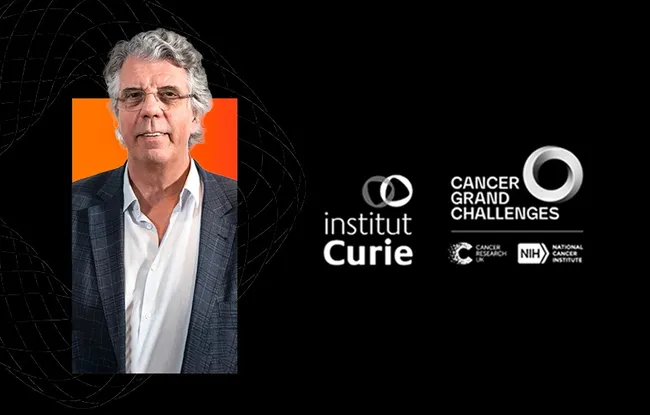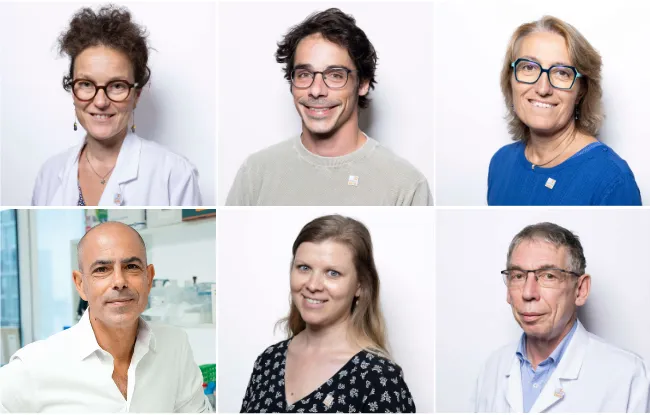- Home >
- Institut Curie News >
- Institut Curie joins global Cancer Grand Challenges team taking on Solid tumors in children
Cancer remains a leading cause of death due to disease among children globally. In the past 30 years, outcomes for some cancers have plateaued. Treatments for solid tumors in children still rely on decades-old chemotherapies, and often radiotherapy. With the goal of improving our understanding of pathological development and finding innovative treatments, Cancer Grand Challenges, a global funding platform co-founded by Cancer Research UK and the National Cancer Institute in the US, supports research by awarding up to $25m to promising teams.
One such team, which includes Olivier Delattre, head of the Cancer, Heterogeneity, Instability and Plasticity unit (Inserm U830) and of the Diversity and Plasticity of Childhood Tumors team at Institut Curie, will use protein degradation strategies to target previously undruggable drivers of children’s cancers. Olivier Delattre’s team will obtain $2,2m, in view of developing potential treatments emerging from these programs, revolutionizing the field, and transforming the lives of those affected by this particular type of cancer.
"This is a very exciting project! Recent developments in chemistry and the state of our knowledge of protein degradation mechanisms make it possible to consider the design of effective new therapeutic tools against solid tumors in children," explains Dr. Olivier Delattre.
As a specialist in Ewing's sarcoma, who was behind the discovery of the oncogene responsible for this disease, which affects almost 80 children a year in France, Olivier Delattre is delighted with this new approach, which complements those already at work in his laboratory, and adds: "This project provides the means to make progress on these aspects, with clinical trials due to start in 5 years' time for one or other of the tumors involved in the project".
The team is funded by Cancer Research UK, Institut National Du Cancer and KiKa (Children Cancer Free Foundation) through Cancer Grand Challenges.



